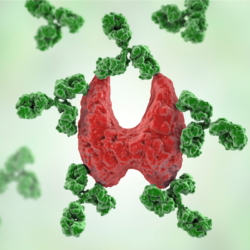The AIP protocol is a short-term elimination diet. This method allows people with autoimmune diseases to determine whether they have food allergies or sensitivities. This so-called “Paleo AIP” diet helps to increase the nutritional quality of the plate on a daily basis. As a result, the intestinal flora, as well as the entire body, returns to a state of balance: general inflammation, chronic pain, as well as the symptoms of autoimmune diseases are reduced.
What does AIP mean?
A.I.P. is “autoimmune protocol in English. In other words, the Autoimmune & Chronic Inflammatory Disease Management Protocol. The creation of this nutritional concept is attributed to Dr. Loren Cordain , in 2011. This scientist discovered that food can generate inflammation, particularly in people suffering from autoimmune diseases. The paleo or paleolithic diet has been in the news for several years now. It is based on the food model of our ancestors: it consists of eating only raw, unprocessed products. The aim of a Paleo diet is to return to a way of eating that more closely resembles what the first humans ate in the Paleolithic era. The rationale for this diet is that the human body is genetically unsuited to the modern diet that emerged with agricultural practices – an idea known as the mismatch hypothesis.
The AIP protocol in a nutshell
The Paleo AIP approach is ultimately a formidable toolbox. This 100% individualised process allows you to understand :
- What happens in our bodies when we eat the wrong foods
- The impact of our lifestyle on health
- The importance of our daily living environment (environment, family, work)
The AIP protocol is a global approach. This holistic approach takes into account the whole person (diet, sleep, stress and lifestyle).
What is an autoimmune disease?
Autoimmune diseases are caused by a dysfunction of the immune system. As a result, the body attacks its own components, as if they were viruses, bacteria or parasites. Antibodies are an important part of the immune system; able to recognise specific proteins in foreign cells, such as pathogens. By binding to them, they signal to the immune cells that there is something to attack.
In autoimmune diseases, the body accidentally produces antibodies that recognise not only foreign proteins, but also the individual’s own proteins. These are called autoantibodies (antibodies that target the “self”). In short, the formation of antibodies against the body’s own tissues is the first step in the development of autoimmune diseases.
What is the link between my diet, my stomach and my immune system?
Poorly varied and nutrient-poor diets (ultra-processed foods) can impair the proper functioning of the immune system. It is also thought that a diet high in refined sugar and red meat but low in fruit and vegetables may have a negative impact on healthy gut microorganisms. As a result, this can lead to chronic inflammation of the gut but also to an inadequate immune response; indeed, 70% of immune cells are located in the gut.
Why choose the AIP method, among so many other dietary methods?
The AIP method has been used for several years now in the United States. The basic principles of this eating pattern are as follows:
Elimination of foods that can :
- Lead to a large immune response
- Long-term weakening of the intestinal barrier
- Trigger long-term hormonal disruption
Diversification of the diet! To do this, it is advisable to :
- Replenish nutrients with the right diet
- Balancing the intestinal microbiota with the help of probiotics naturally present in certain foods
Creation of a 100% individualised diet & adapted to the profile of each person
- Use an innovative protocol
- Personalise your diet from A to Z
- Find your balance.
Sources
- https://pubmed.ncbi.nlm.nih.gov/16029676/
- https://www.ncbi.nlm.nih.gov/pmc/articles/PMC5647120/
- https://www.mdpi.com/2072-6643/11/6/1239





